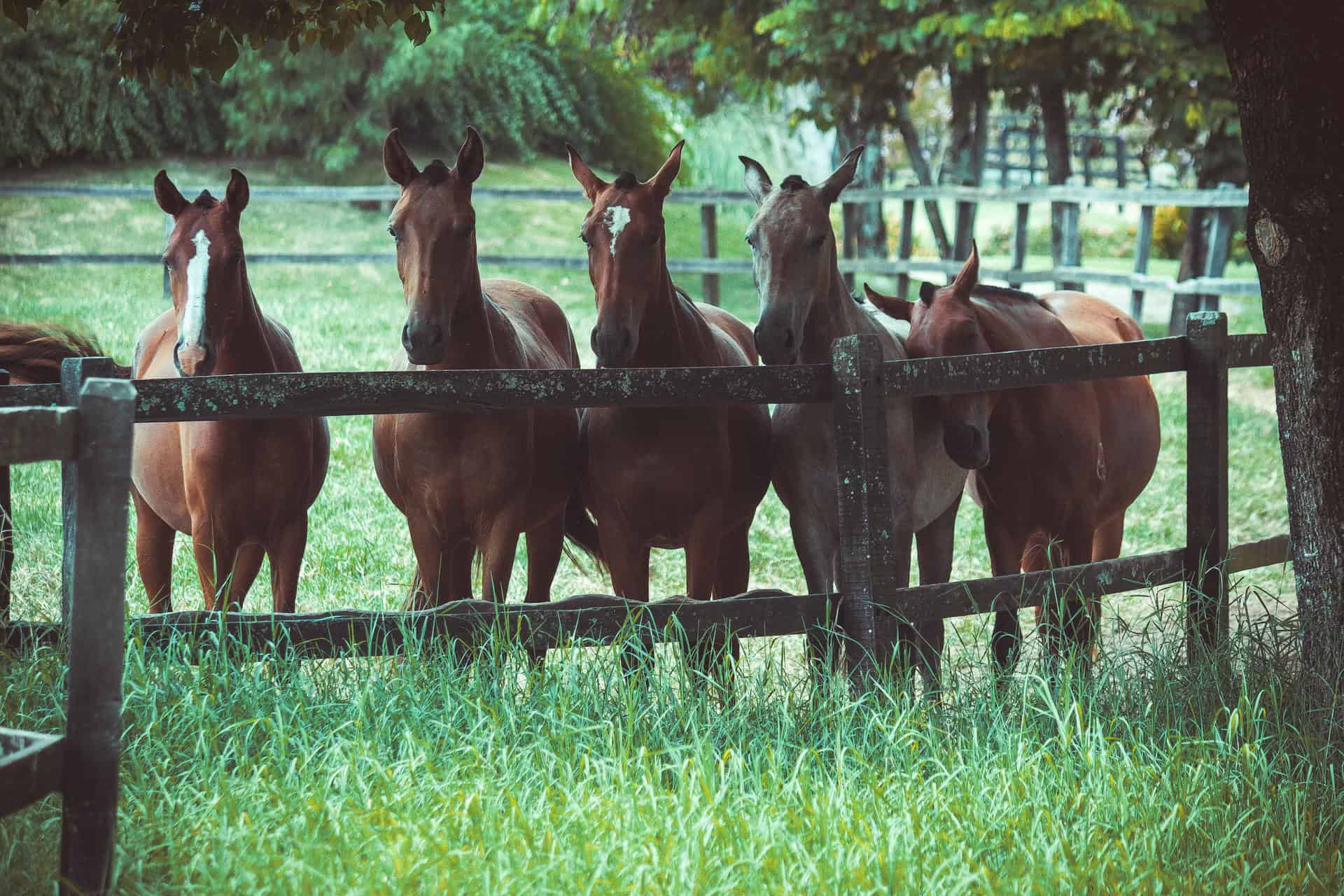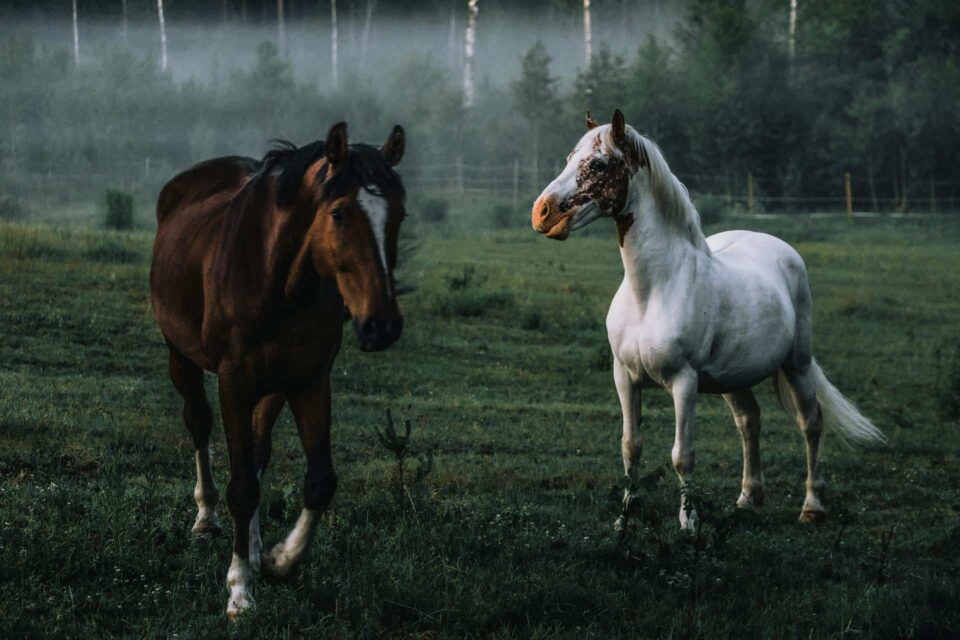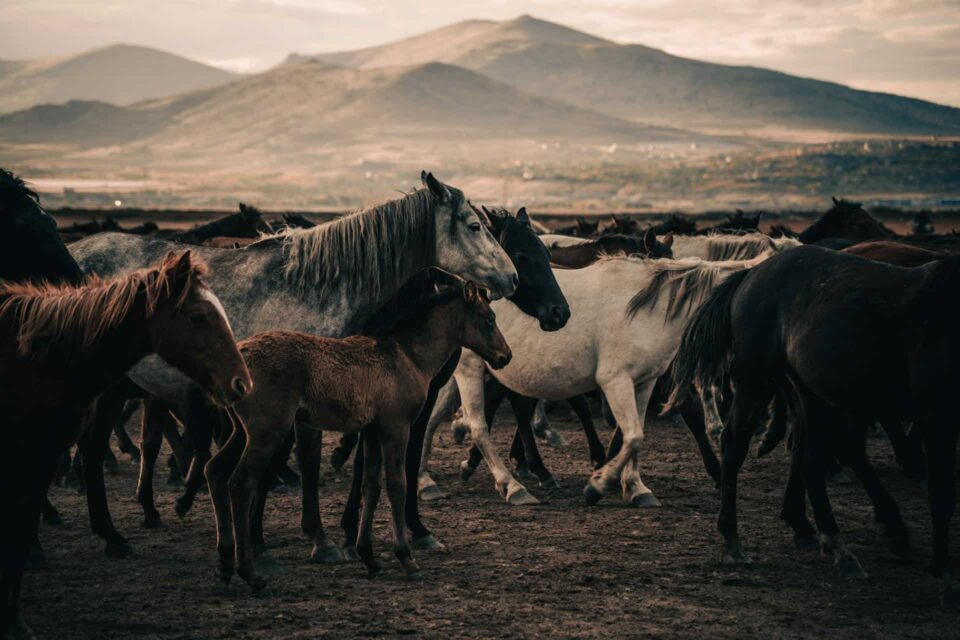
Are Horses Social Animals? Here's What You Should Know
Horses are fascinating creatures with a rich social life. They form complex relationships within their herds and with humans. Understanding these social structures and interactions can help us better care for and bond with these magnificent animals.
Key Takeaways
- Horses have a structured social hierarchy within their herds.
- They can recognize human faces and read our emotions.
- Companionship is crucial for a horse's well-being.
- Horses have excellent long-term memory.
- Every horse has a unique personality that affects its behavior

The Social Structure of Horse Herds
Horses are fascinating creatures, especially when you look at how they interact within their herds. Understanding their social structure can deepen your appreciation for these majestic animals.
Horses and Human Interaction
Recognizing Familiar Faces
Horses have a unique ability to recognize familiar faces. They can remember people they have met before and often show a preference for specific individuals. This recognition is not just limited to their owners but can extend to anyone they have positively interacted with. Are horses social animals? Their ability to recognize familiar faces is a testament to their social nature.
Reading Human Emotions
Horses are incredibly perceptive and can read human emotions. They can sense when you are happy, sad, or even stressed. This ability to read emotions helps them respond appropriately to your mood, making them excellent companions. They can provide comfort when you feel down and share your joy during happy moments.
Bonding Through Training
Training is not just about teaching horses new tricks; it's also about bonding with them. Consistent and positive training methods can help you build a strong relationship with your horse. This bond is built on trust and mutual respect, making the training process enjoyable for both of you. Training sessions can be a great way to spend quality time together and strengthen your connection.
In summary, horses are social animals that thrive on interaction, whether recognizing familiar faces, reading human emotions, or bonding through training. Their ability to connect with humans on such a deep level makes them unique and cherished companions.

The Importance of Companionship for Horses
Mutual Grooming and Play
Horses are incredibly social animals. One of the ways they bond is through mutual grooming. This is when horses use their teeth to scratch each other in places they can't reach themselves. It's not just about getting rid of an itch; it's a way to build strong bonds within the herd. Horses also love to play together, running around, and having fun. This playtime is crucial for their mental and physical health.
Safety in Numbers
In the wild, horses rely on each other for safety. They take turns keeping watch while others rest. This behavior, known as "safety in numbers," helps them feel secure. Even in domestic settings, horses feel much safer having a buddy around. A lone horse can become anxious and stressed, always looking for danger.
Signs of Stress in Isolated Horses
When horses are kept alone, they can show signs of stress. You might notice them frequently running up and down the fence line or whinnying. They may also lose weight or show dull, "switched-off" behavior. These are clear indicators that your horse needs a companion. Having another horse around can significantly improve their well-being.
Horses are happiest when they have a friend. They thrive on social interactions, whether grooming, playing, or standing close to each other. If you own a horse, consider getting them a buddy. It will make a world of difference in their happiness and health.
Related: Horse Grooming 101: Why is it Important?
Learning and Memory in Horses
Their Ability to Learn Tricks
Horses pick things up quickly. Their extraordinary capacity for learning enables us to train them tricks, ride them, and perform breathtaking performances that will astound you. They make great partners in a variety of activities since they are quick to learn new orders and routines.
Long-term Memory
A horse's memory is incredibly long. They recall the positive encounters. Despite the years since they last saw one another, they still think of their old horsey companions. They recall the horrible incidents as well. They do recall harsh handling and any significant riding errors.
The good news is that horses are not resentful. They move on and adapt the moment they can change or get better or the moment their surroundings alter. Though you may be certain they are prepared and waiting for brighter days to come, they will remember everything.
Adapting to New Environments
Horses are incredibly adaptive animals. Their ability to adapt to novel surroundings and circumstances relatively easily is essential to their survival and welfare. Horses quickly pick up on new information and adjust to their environment, whether moving to a new stable or meeting new herd members.
Horses are gregarious animals by nature. This connects to us as people because, when we engage with horses, we should recognize that they view us as fellow members of their herd as well. They live in a herd scenario and represent the idea of "safety in numbers." Thus, we should review our equine-style communication techniques!
Unique Personalities of Horses
Identifying Different Traits
Horses have individual personalities made up of their temperaments, character traits, quirks, likes, and dislikes, just like people do. While some horses may be more laid-back and prefer a slower pace, others may be overachievers who are constantly ready to learn and perform. You and your horse can have a stronger relationship if you can identify these characteristics.
How Personality Affects Behavior
A horse's personality can significantly influence its behavior. For instance, a playful and cheeky horse might enjoy interactive games and tricks, while a more reserved horse might prefer quiet and calm activities. Understanding your horse's personality can help you tailor your training and interaction methods to suit their needs.
Building a Relationship Based on Personality
Building a strong relationship with your horse involves understanding and respecting their unique personality. Spend time observing your horse's behavior and reactions in different situations. This will help you identify what they enjoy and what makes them uncomfortable. You can create a bond based on trust and mutual respect by catering to their preferences.
Horses, like humans, have their temperaments, character traits, quirks, likes, and dislikes that make up their unique personalities. Recognizing these traits can help you build a better relationship with your horse.
Physical and Emotional Well-being
The Role of Exercise
Exercise is crucial for a horse's overall health. Regular physical activity helps maintain muscle tone, supports cardiovascular health, and keeps joints flexible. Horses in the wild naturally get plenty of exercise as they roam and graze. For domesticated horses, it's important to provide opportunities for movement, whether through riding, lunging, or turnout in a pasture.
Emotional Health in Social Settings
Horses are social animals and thrive in environments where they can interact with other horses. Being part of a herd allows them to engage in natural behaviors like mutual grooming and play, which are essential for their emotional well-being. A horse's lifestyle has a significant impact on its health and well-being. Isolation can lead to stress and behavioral issues, so ensuring they have companionship is important.
Impact of Human Interaction on Well-being
Human interaction also plays a vital role in a horse's emotional health. Horses can form strong bonds with their owners and handlers. Positive interactions, such as grooming, training, and spending time together, can enhance a horse's emotional state. Recognizing and responding to a horse's emotional cues can help build a trusting relationship, contributing to their overall well-being.
Related: Nature’s Groomers: Wild Horses and Their Hoof Trimming Tricks!
Horses as Athletic Animals
Natural Athleticism
Horses are naturally athletic creatures. Their unique ability to move quickly and gracefully is a sight to behold. Their agility and speed are impressive, whether galloping across a field or jumping over obstacles. This natural athleticism is not just for show; it plays a crucial role in their survival. As prey animals, horses rely on their ability to outrun predators to stay safe.
Training for Different Disciplines
Horses can be trained for various disciplines, from dressage to show jumping to racing. Each discipline requires a different set of skills and conditioning. For example, a racehorse needs to build speed and endurance, while a dressage horse focuses on precision and control. The rigorous training process demands a lot of dedication from the horse and the trainer.
The Role of Physical Conditioning
Like human athletes, horses need proper physical conditioning to perform at their best. This includes a balanced diet, regular exercise, and adequate rest. Proper conditioning helps prevent injuries and ensures that the horse can handle the physical demands of their specific discipline. Providing them with an appropriate environment is essential, ensuring their overall well-being and performance.
Horses are naturally social animals and thrive in calm, stress-free environments. To help keep your horse relaxed and comfortable, try Gou Gou Pets’ Calming Shampoo for Horses, which soothes their skin while promoting relaxation. Make grooming a calming experience that supports your horse’s well-being.
Conclusion
In conclusion, horses are social animals with a rich tapestry of behaviors and interactions. Their ability to form strong bonds, not just with other horses but also with humans, showcases their social intelligence. Whether they're grooming each other, playing, or simply standing together for comfort, horses thrive on companionship. Understanding their social nature helps us better care for them and build stronger, more meaningful relationships. So, the next time you see a horse, remember they're not just majestic creatures; they're social beings who value connection just as much as we do.
Share
